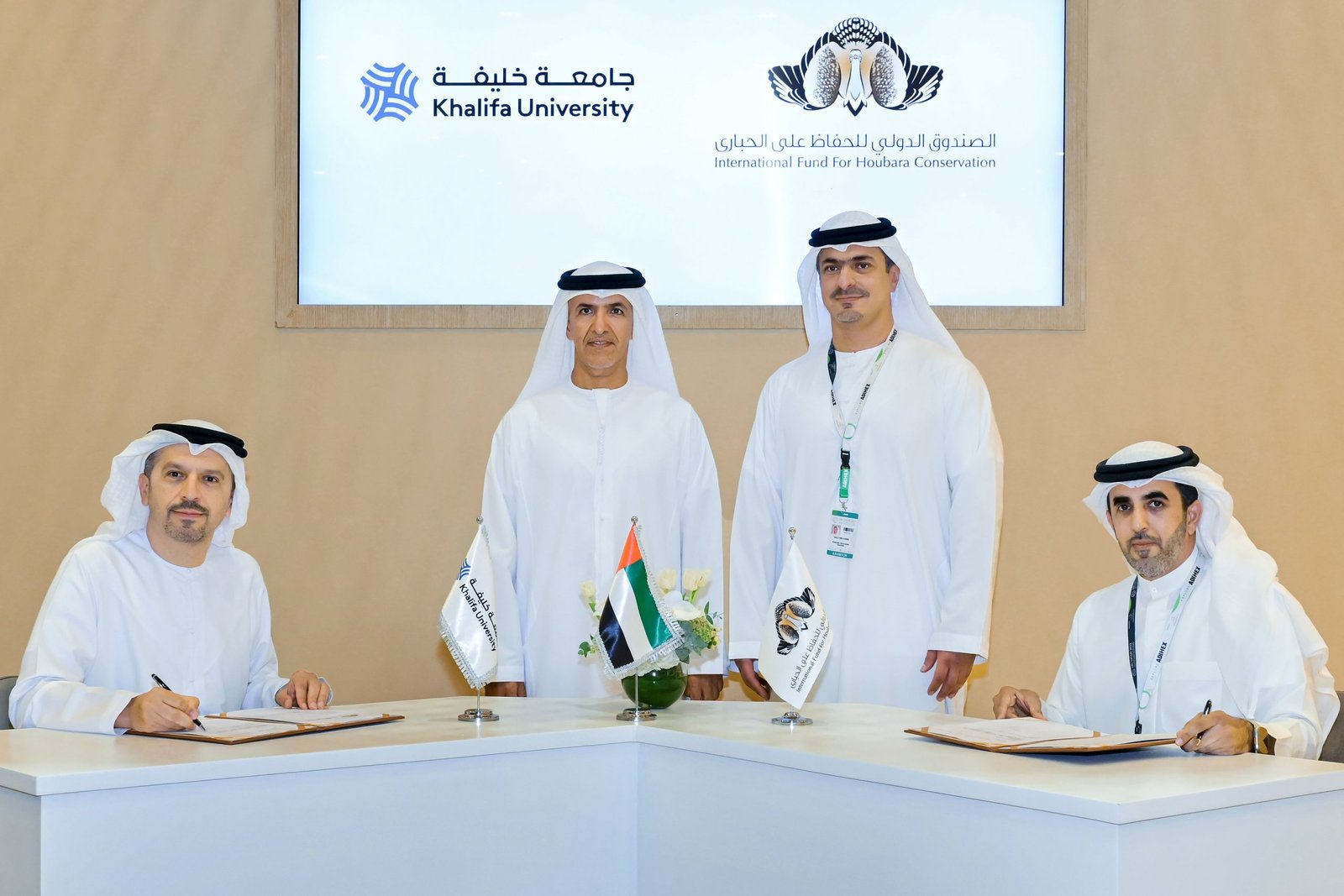The primary focus of the MoU encompasses diverse scientific disciplines, including robotics, intelligent systems, genetics, and genomics for breeding projects.

The International Fund for Houbara Conservation (IFHC) has entered into a Memorandum of Understanding (MoU) with Khalifa University of Science and Technology during the Abu Dhabi International Hunting and Equestrian Exhibition. This collaboration marks a significant step in advancing scientific research, training, and technology adoption in the realm of wildlife preservation.
The primary focus of the MoU encompasses diverse scientific disciplines, including robotics, intelligent systems, genetics, and genomics for breeding projects. It also seeks to provide invaluable training opportunities for students and create employment prospects for qualified national talent, particularly in technical and scientific roles within the Fund.
Two pivotal research agreements are poised to be initiated under this collaboration, with the first agreement targeting the utilization of intelligent systems. This involves developing computational models to analyze various aspects of houbara behavior, such as bird positioning, vegetation categorization, individual bird detection and tracking, camera trap footage analysis, and examination of images from captive-bred birds.
The second agreement is centered around robotics and aims to create a houbara robot. This innovative robot will conduct on-site ecological studies, gather critical data on wild houbara species in their natural habitats, and study behaviors like mating. The ultimate goal is to collect semen from wild male houbara to enhance genetic diversity within the captive breeding program.
This collaboration aligns seamlessly with the directives of IFHC’s Board of Directors, emphasizing the importance of leveraging cutting-edge research and technology to bolster the Fund’s leadership and its advanced preservation programs for vulnerable species.
Furthermore, it seeks to forge robust partnerships with distinguished national universities and institutions dedicated to development and scientific research.
The signing ceremony, held at the IFHC pavilion, was attended by esteemed figures including His Excellency Dr. Mugheer Khamis Al Khaili, Chairman of the Department of Community Development, His Excellency Abdullah Ahmed Khalaf Al Qubaisi, Managing Director of the International Fund for Houbara Conservation, His Excellency Abdulla Ghurair Al Qubaisi, Director General of the International Fund for Houbara Conservation, and Dr. Arif Sultan Al Hammadi, Executive Vice-President from Khalifa University of Science and Technology.
His Excellency Abdulla Ghurair Al Qubaisi expressed enthusiasm about this collaboration, highlighting how it will accelerate research objectives and provide valuable insights into houbara bustards’ lives and their natural habitats. He emphasized the innovative use of robotics in conducting behavioral studies of these birds.
Dr. Arif Sultan Al Hammadi, Executive Vice President of Khalifa University of Science and Technology, underscored the significance of this partnership in enhancing wildlife protection research. He noted that this collaboration opens doors for professors and students to engage in essential research and studies that align with the Fund’s objectives, promoting the role of universities as vital national research institutions in conserving endangered species.
The International Fund for Houbara Conservation, an extension of Sheikh Zayed bin Sultan Al Nahyan’s initiative, is dedicated to preserving houbara bustards, protecting their habitats, and fostering global partnerships for conservation efforts. Established in 2006, IFHC operates breeding and research centers across the globe to support the wild populations of houbara.
Through this strategic collaboration, IFHC and Khalifa University aim to pioneer advancements in wildlife preservation that will have a lasting impact on the world’s efforts to protect vulnerable species.